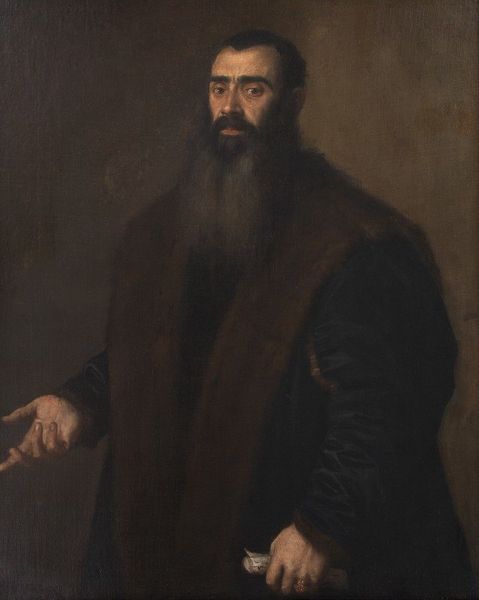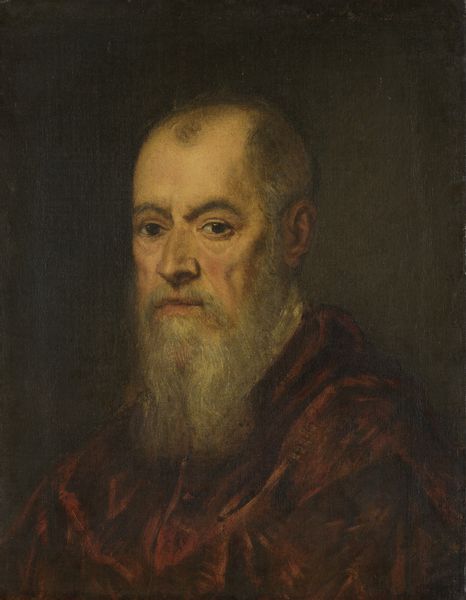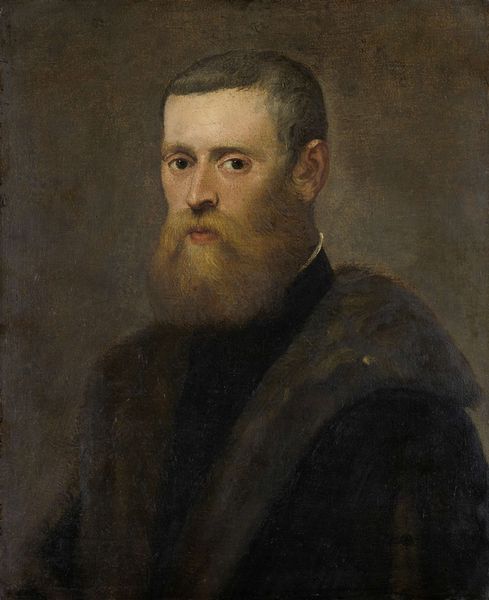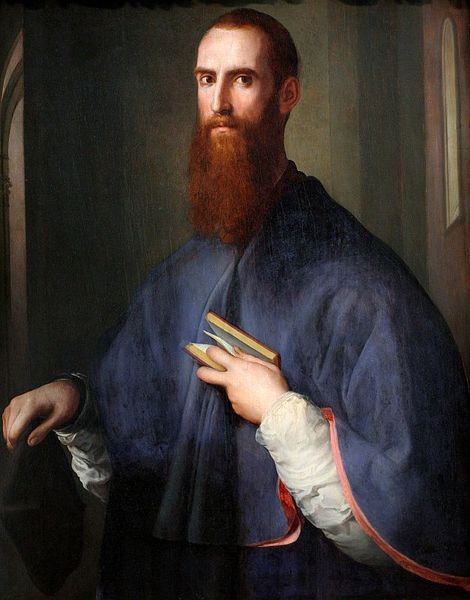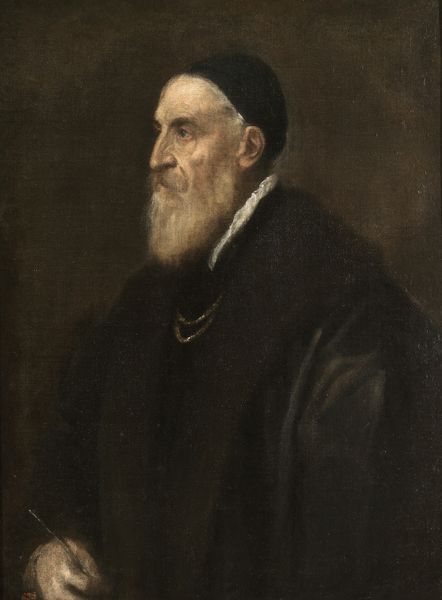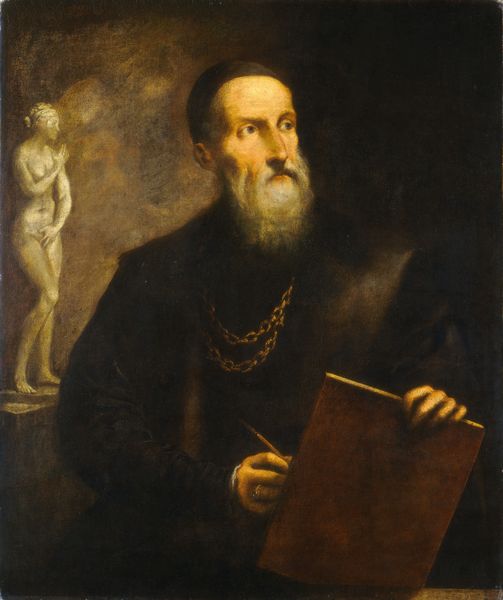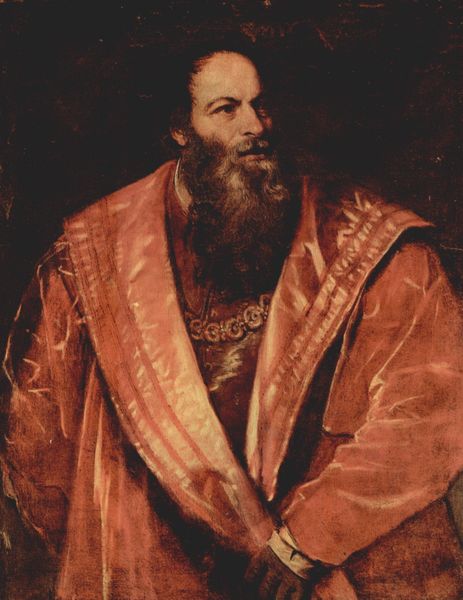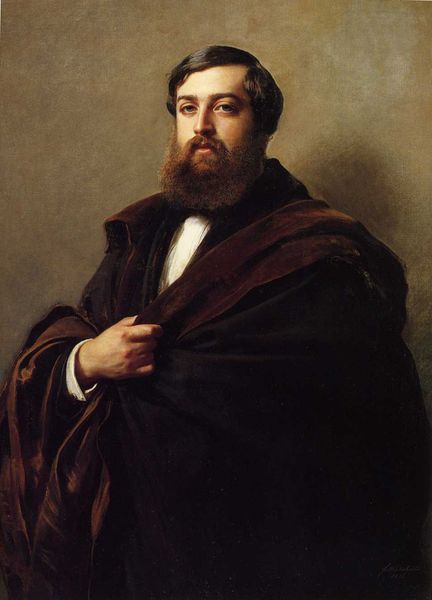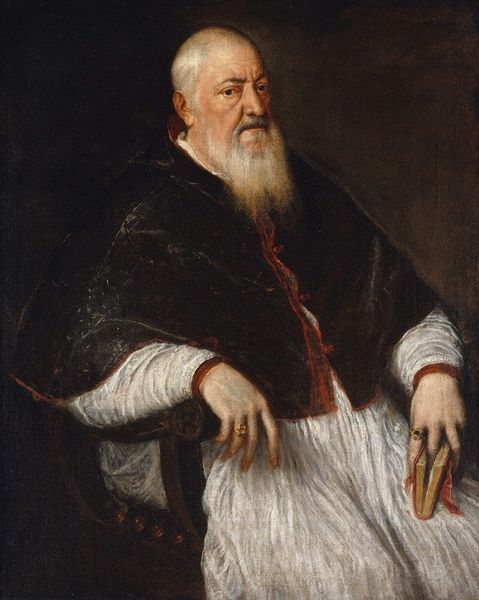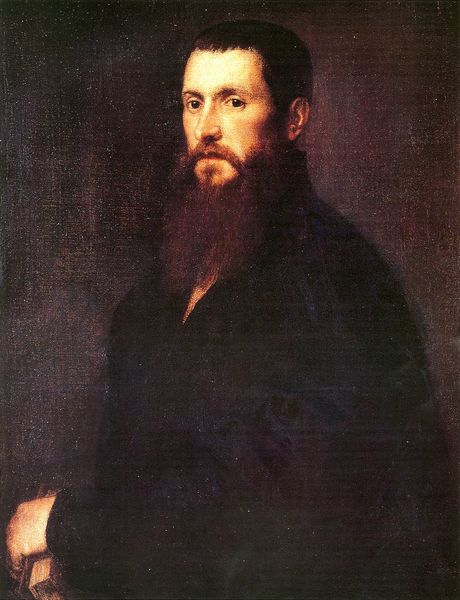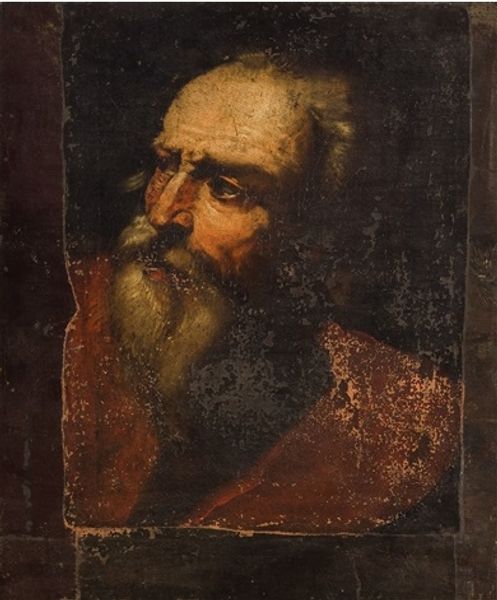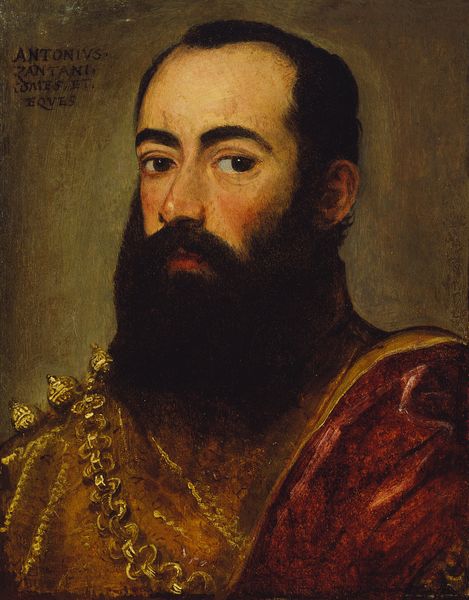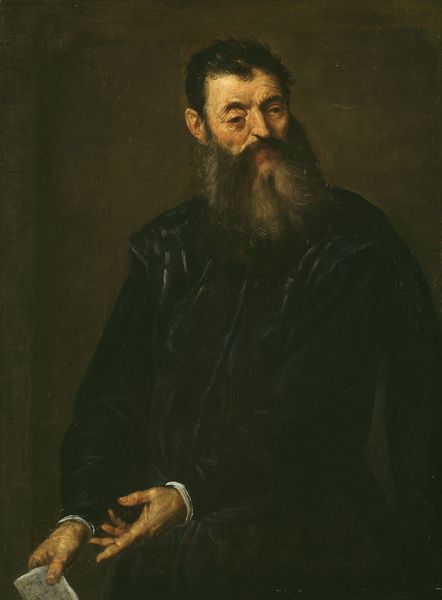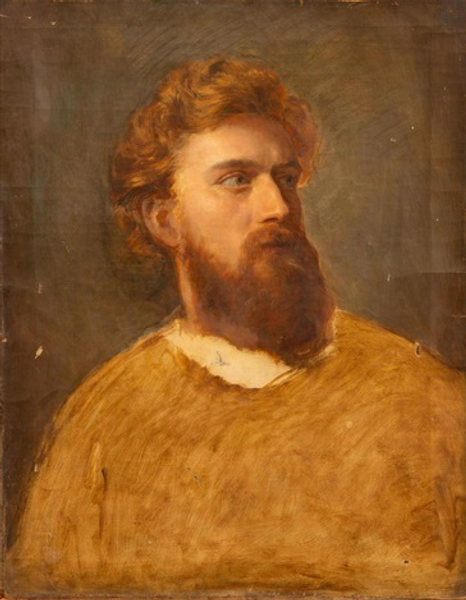
Portrait of Agostino Barbarigo 1571
0:00
0:00
paoloveronese
Cleveland Museum of Art (CMA), Cleveland, OH, US
painting, oil-paint
#
portrait
#
portrait
#
painting
#
oil-paint
#
italian-renaissance
#
realism
Dimensions: 48 x 60 cm
Copyright: Public domain
Paolo Veronese painted this oil on canvas portrait of Agostino Barbarigo at an unknown date. The painting depicts a man in armor, presumably a military or political figure. The armor itself suggests power, authority and perhaps also preparation for conflict, which would speak to the institutional role of wealthy families in Venice. In sixteenth-century Venice, portraits were tools used to project status and virtue. The doge, or elected leader, held a powerful position and represented the interests of the city-state. Veronese's portrait may therefore be a reflection of Venice's political landscape at the time, in which powerful families competed for influence. Art historians delve into the archives, scrutinize period documents, and explore cultural contexts to uncover the layers of meaning embedded in such works. When we recognize artistic creation as something that is contingent on social and institutional context, we come to a richer understanding of its significance.
Comments
No comments
Be the first to comment and join the conversation on the ultimate creative platform.
